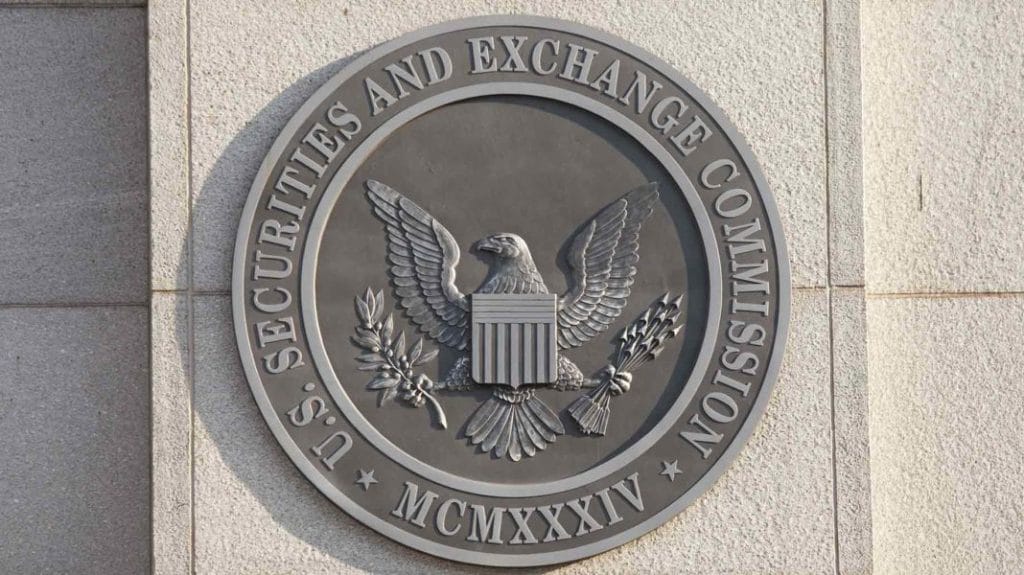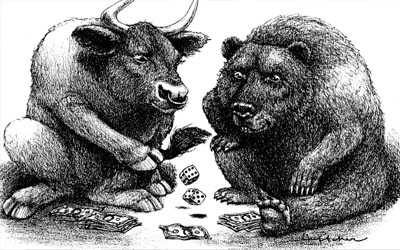
The latest U.S. Securities and Exchange Commission (SEC) Framework indeed signals that the authority is open to recognize that tokens are not securities. Though this is a step towards complete regulation of cryptocurrencies, it “does little to advance in clarity.” That is, at least, what The Chamber of Digital Commerce reads behind the lines of the framework.
Simply put, on April 3, the SEC released staff guidance entitled, “Framework for ‘Investment Contract’ Analysis of Digital Assets,” to discuss its application of the Howey Test to digital assets. Specifically, the guidance describes the various considerations for determining when a digital asset may constitute an “investment contract” under federal securities laws based on the actions of promoters, sponsors, or other third parties. The SEC also issued a No-Action Letter regarding TurnKey Jet, Inc.’s (“TurnKey Jet” or “TKJ”) plans to develop a program to use digital tokens to facilitate transactions.
Both of these developments are pivotal efforts that will help define how various types of tokens will be treated by U.S. regulators. Said another way, depending on how they are defined, the SEC could assert sweeping jurisdiction (read: enforcement) over the token industry. If within the SEC’s scope, tokens and token sponsors must comply with SEC registration and reporting requirements or qualify for an exemption.
“Our overall view of these developments is that they represent a cautious, albeit imperfect, first step,” continued the Chamber in a Press Release. “The fact that the SEC (staff) has issued a document acknowledging in more detail that tokens may not be securities and provides in depth criteria for determining when that may be the case, comes a long way from Chair Clayton’s statements made in February 2018 during a U.S. Senate hearing that every ICO he’s seen is a security, as well as conversations we have had with the SEC last year.”
The prestigious organisation also pointed out that the Framework acknowledges in writing (rather than verbally in a speech) that tokens may be a security at one point in time, and then no longer maintain those characteristics of a security as the platform evolves, a policy position that William Hinman, Director of the SEC’s Division of Corporation Finance, notably enunciated regarding ether in remarks at an industry conference on June 14, 2018.
“Finally, the Framework also recognizes that virtual currencies may be viewed differently, albeit as a factor in the overall equation. That said, bitcoin and ether should be considered outside the scope of the securities laws given the SEC’s requirements that a currency be immediately used to make payments in a wide variety of contexts or act as a substitute for real currency, may be used to pay for goods or services without first having to convert it, and operate as a store of value that can be saved, retrieved, and exchanged for something of value at a later time,” they said.

Unfortunately, the good news stops there. By developing a list of over 60 criteria for analysis, the SEC staff has ensured that every token platform will trigger at least one of those criteria, if not more, thus expanding any analysis significantly.
“In addition, with little explanation of which factors carry more weight and which carry less, or how those are measured, participants in token systems (and legal counsel for those participants) have an even more challenging task of determining when the relevant token reasonably may be considered a security. Thus, while the insight into the various factors that may cause a token to be viewed as a security is interesting, the sheer number of those factors without meaningful guidance as to how those will be weighted and assessed, potentially creates more ambiguity, rather than less,” was commented by the Chamber.
In parallel, The Framework represents the views of SEC’s FinHub staff, which makes it not binding to the Commission. Further, by its own terms it restates information drawn from enforcement actions, speeches, the DAO Report, and other previously made statements, thus leaving the industry searching for meaningful clarity.
Given this first yet blurred step the Chamber wanted to remember that community has a lot of work to do and to continue to demonstrate the fundamental differences among the various types and functions of tokens. Many businesses and consumers are still wary of conducting business or transactions using blockchain because of the lack of a predictable legal environment governing activities involving the technology.
In the current blockchain ecosystem, the development of digital tokens that can represent numerous things, from a currency, to a commodity, a security, title to property, identity, provenance, and many others, has created the need to interpret existing laws that may no longer adequately govern the new features of this technology. As we continue to develop these technologies worldwide, we have seen that government policies have a profound effect on the development of blockchain in that location.
“Many countries are capitalizing on this opportunity and promoting policies that encourage adoption, while others are not as supportive. It is imperative that governments recognize publicly the benefits of this technology in order to engage businesses (and government) to enable innovation,” they concluded.

Hernaldo Turrillo is a writer and author specialised in innovation, AI, DLT, SMEs, trading, investing and new trends in technology and business. He has been working for ztudium group since 2017. He is the editor of openbusinesscouncil.org, tradersdna.com, hedgethink.com, and writes regularly for intelligenthq.com, socialmediacouncil.eu. Hernaldo was born in Spain and finally settled in London, United Kingdom, after a few years of personal growth. Hernaldo finished his Journalism bachelor degree in the University of Seville, Spain, and began working as reporter in the newspaper, Europa Sur, writing about Politics and Society. He also worked as community manager and marketing advisor in Los Barrios, Spain. Innovation, technology, politics and economy are his main interests, with special focus on new trends and ethical projects. He enjoys finding himself getting lost in words, explaining what he understands from the world and helping others. Besides a journalist he is also a thinker and proactive in digital transformation strategies. Knowledge and ideas have no limits.











































